RGE has failed to adhere to no-deforestation commitments, creating liability for global brands and banks still doing business with the rogue company
Nearly two years after being exposed for driving deforestation in one of the most important forests left on the planet – the Singkil Bengkung region of Indonesia’s Leuser Ecosystem – major brands and banks are once again implicated for failing to end deforestation in their palm oil supply chains and financial portfolios.
The notorious forestry titan Royal Golden Eagle (RGE), connected to a vast web of international banks and brands, has been caught sourcing from a palm oil mill and producer that have been expelled from much of the global palm oil marketplace due to breaches of anti-deforestation and peatland destruction policies. This latest investigation by Rainforest Action Network (RAN) proves that RGE Group remains one of the most controversial actors in the Indonesian forestry and palm oil sectors.
Despite its failure to adhere to No Deforestation, No Peatland and No Exploitation (NDPE) policies, RGE Group continues to supply palm oil to Unilever, Kao, Procter and Gamble, PepsiCo, Mondelēz, Nestlé and Colgate-Palmolive, as well as receive financing from MUFG, ABN Amro, and Industrial and Commercial Bank of China (ICBC). RGE Group’s palm oil arm APICAL also maintains its joint venture partnership with Kao despite its proven sourcing of Conflict Palm Oil from producers destroying the last habitat for Sumatran elephants and orangutans in the Leuser Ecosystem.
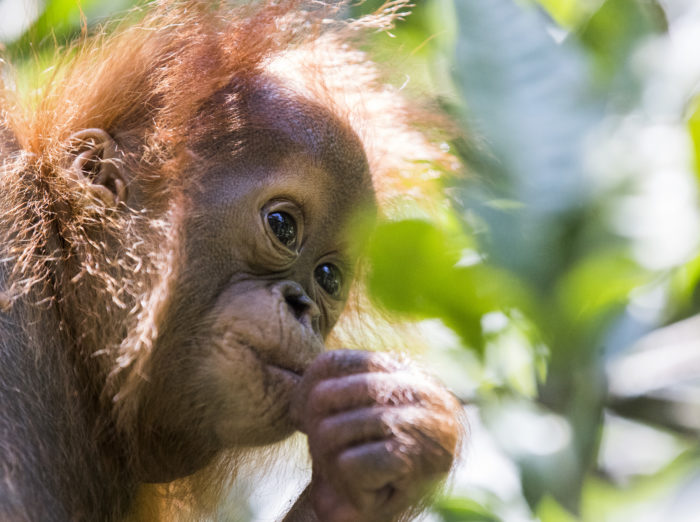
The forests of the Singkil-Bengkung region are home to the highest density population of Sumatran orangutans left on the planet. Major brands and banks are complicit in driving the destruction of this orangutan capital of the world.
RAN’s undercover field investigators have collected evidence showing that oil palm fruits grown in the plantation operated by the rogue palm oil company PT. Laot Bangko has been harvested and transported to a discredited mill operated by PT. Global Sawit Semesta. In turn, PT. Global Sawit Semesta has sold the crude palm oil to a refinery operated by RGE’s palm oil arm. This is the second time in a year that RGE Group has been exposed for its role in the destruction of the Leuser Ecosystem.
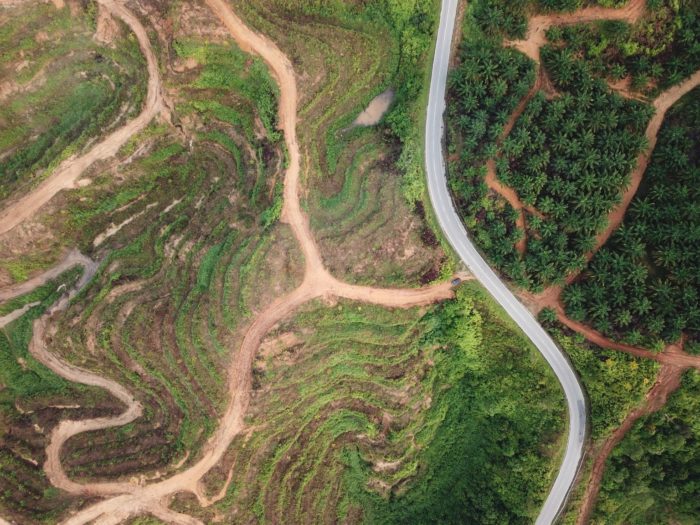
Forest clearance documented inside PT. Laot bangko’s palm oil concession. February 2019.
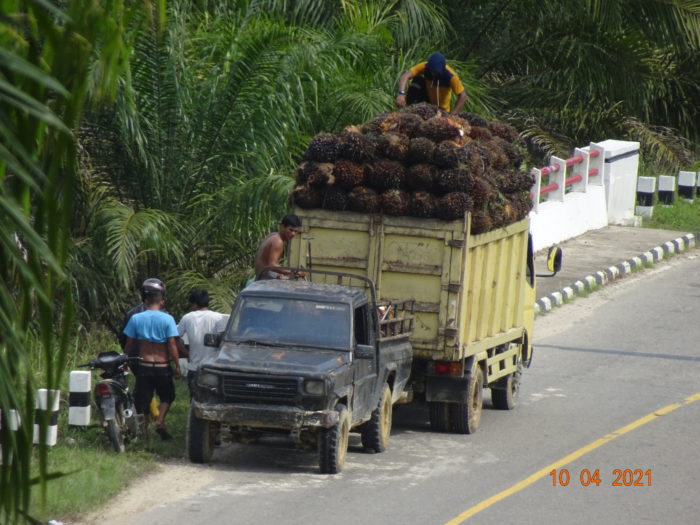
Oil palm fresh fruit bunches are loaded onto a truck at the PT Laot Bangko palm oil plantation.
PT. Laot Bangko has been exposed repeatedly by RAN since 2014, including for the destruction of almost 300 acres of forests that are habitat for Sumatran elephants and orangutans. Exposes were published in 2018 and 2019, and satellite imagery showed clearing continued into early 2021. Nearly a third of the roughly 17,000 acres of PT. Laot Bangko’s palm oil concession is subject to a dispute with local communities that rely on the land to meet their daily needs. The director of the company has admitted that the company needs to resolve the conflict, but has not committed to handing back the land to the local community. PT. Laot Bangko is owned by PT. Bima Golden Powerindo—a company controlled by William and Cynthia Taylor. That company also owns a palm oil mill and plantation called PT. Muara Jambi Sawit Lestari in Jambi, Indonesia that also supplies Nestlé, Procter & Gamble, PepsiCo and Mondelēz.
Unilever and Nestlé claim to have placed a ban on sourcing from PT. Laot Bangko and report that their suppliers have enforced this ban in their supply chains in the Leuser Ecosystem. Investigations undertaken in April 2021 prove this is not the case, as the problematic palm oil mill called PT. Global Sawit Semesta––exposed in RAN’s 2019 year long investigation for sourcing illegally produced palm oil–– continues to source and sell Conflict Palm Oil produced by the rogue actor to RGE Group which is a supplier to both Unilever and Nestlé. PT. Global Sawit Semesta is also listed as a supplier to Procter & Gamble and PepsiCo.
Procter and Gamble, PepsiCo, Mondelēz, Mars and Colgate-Palmolive have failed to report on actions taken to stop sourcing from this disgraced palm oil company. Personal care giant Kao has also failed to disclose actions taken to suspend its business relationships until RGE Group––and its joint venture partner APICAL–can prove compliance with its NDPE policy. These latest findings from the field show that across the board brands have inadequate monitoring and non-compliance systems, are unable to enforce the No Buy policies when they are adopted, and have failed to cut Conflict Palm Oil from their supply chains despite promises made to their customers that they have done so.
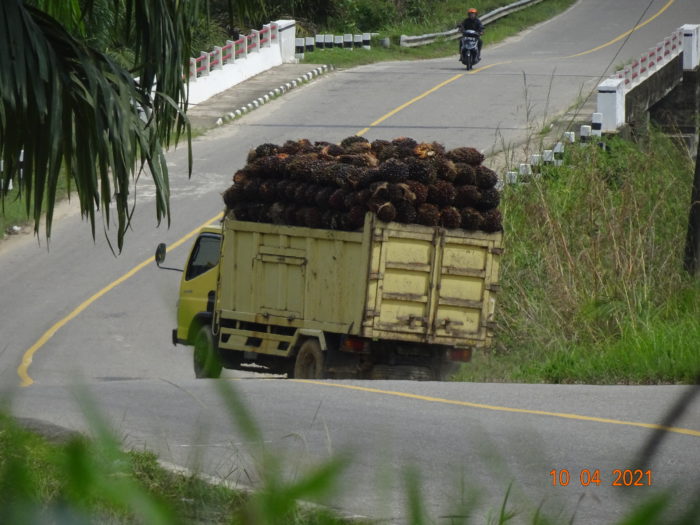
The truck carrying oil palm fresh fruit bunches leaves the PT. Laot Bankgo palm oil concession.
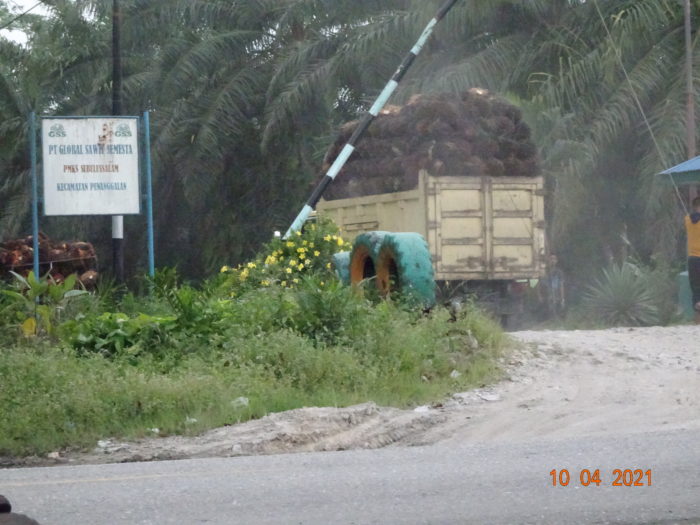
The truck carrying oil palm fresh fruit bunches arrives at the PT. Global Sawit Semesta Crude Palm Oil mill––despite the mill claiming to have a ‘No-Buy policy’ in effect that means it will not buy from PT. Laot Bangko and other producers that have cleared rainforests in the Leuser Ecosystem.
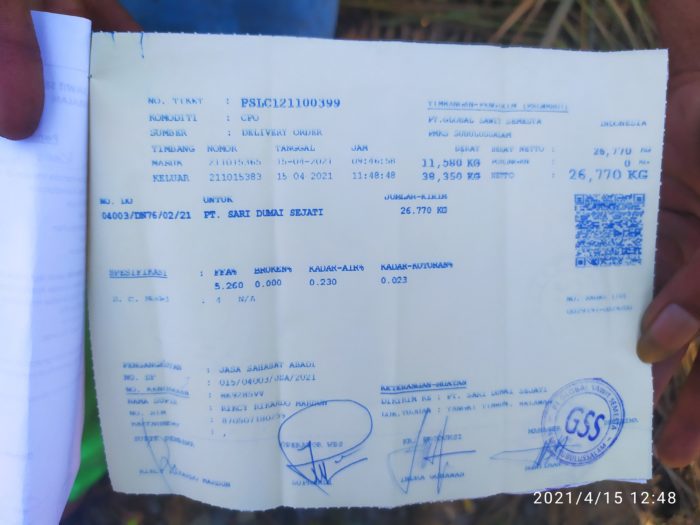
This investigation uncovered evidence that the mill caught sourcing from PT. Laot Bankgo is a supplier to PT. Sari Dumai Sejati Tangki Timbun—a palm oil refinery operated by a subsidiary of APICAL—one of the palm oil arms of the Royal Golden Eagle Group.
Royal Golden Eagle’s response to the September 2020 scandal where its refinery was exposed for sourcing from a mill lacking the systems to ensure it did not source from producers destroying rainforests was inadequate. RGE Group failed to undertake a supply chain-wide assessment of its supplying mills to determine which mills were sourcing from non-compliant producers known to be destroying the Leuser Ecosystem. As a result RGE Group continues to supply its clients with Conflict Palm Oil produced at the expense of this global biodiversity hotspot. Unilever and Kao’s published list of supplying refineries shows that both companies source from this refinery despite its recent sourcing from deforestation-linked suppliers. This is a major failure by both Unilever and Kao to implement their no deforestation policies.
Royal Golden Eagle has also been exposed recently for driving deforestation in critically important areas of forests and peatlands in North Kalimantan through its shadow company, the pulp wood supplier Adindo. Hundreds of outstanding cases demonstrate its blanket failure to resolve conflicts created by its violations of the rights of communities affected by its plantation developments. A RAN report published in December 2020 also showed that the RGE group lacks adequate policies and procedures needed to respect Indigenous Peoples and communities rights to give or withhold Free, Prior and Informed Consent to development on their lands.
The fact that Royal Golden Eagle is not on the No Buy List of major brands, nor has it been excluded from global palm oil and pulp and paper supply chains, is a clear case of the failure of brands to implement their No Deforestation, No Peatland and No Exploitation commitments.
Banks have also failed to take adequate response to documented controversies associated with the Royal Golden Eagle group. Forestsandfinance.org shows that between 2016 and 2020, MUFG, ABN Amro, ICBC provided US $518 million in credit to Royal Golden Eagle group. ABN Amro and MUFG both have No Deforestation, No Peatland No Exploitation (NDPE) policies for their palm oil financing, which are at odds with their relationship with RGE.
ABN Amro has recently decided to discontinue all commodity financing, but its exposure to the destructive activities of Sukanto Tanoto’s RGE group means the Dutch bank has responsibility to engage its long term client to secure remedy for social and environmental harms. ICBC is also a signatory to UN Principles on Responsible Banking (UNPRB) which commits it to align lending with the goal of halting deforestation by 2020. ICBC has still not published any policies – like NDPE – on how it’ll stop finance flowing to companies involved in deforestation.
The reputations of major brands and banks continue to face serious risk of damage through association with Royal Golden Eagle group. To insulate themselves from market backlash, these brands and banks must suspend sourcing from, or financing of the Royal Golden Eagle group at a corporate group level. All business relationships must be suspended until RGE Group, and all its subsidiaries and affiliated companies, strengthen policies and procedures to align with No Deforestation, No Peatland and No Exploitation benchmarks, and can prove independently verified compliance with a set of preconditions including ending deforestation in its third party suppliers operations, remedying harm and resolving conflicts with communities including return of community lands affected by its plantation developments, and restore vast areas of peatlands.
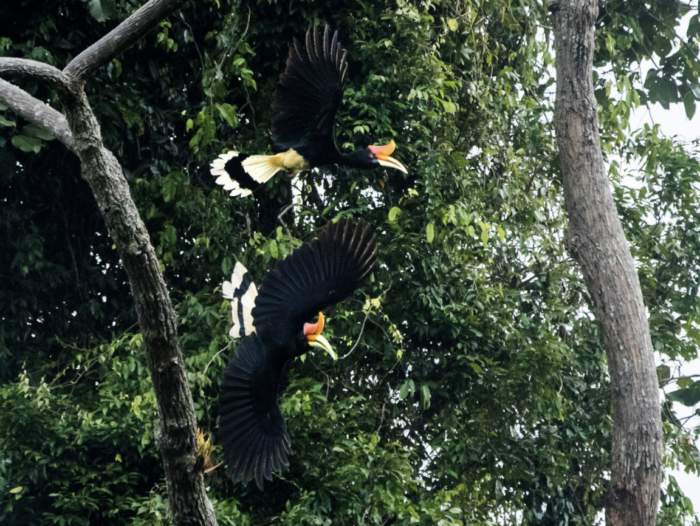
The forests of the Singkil-Bengkung region are home to unique and endangered species including these magnificent Hornbills